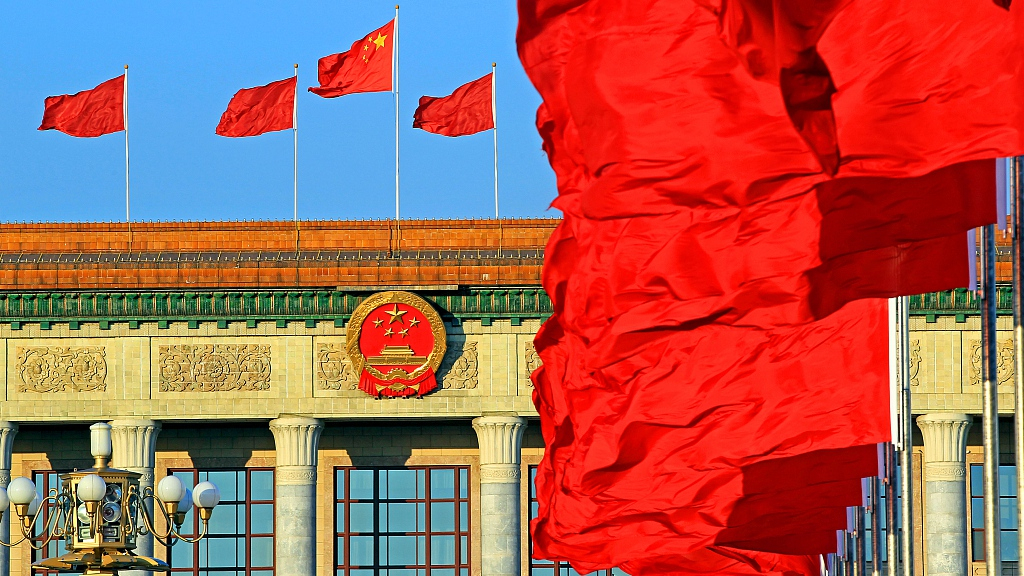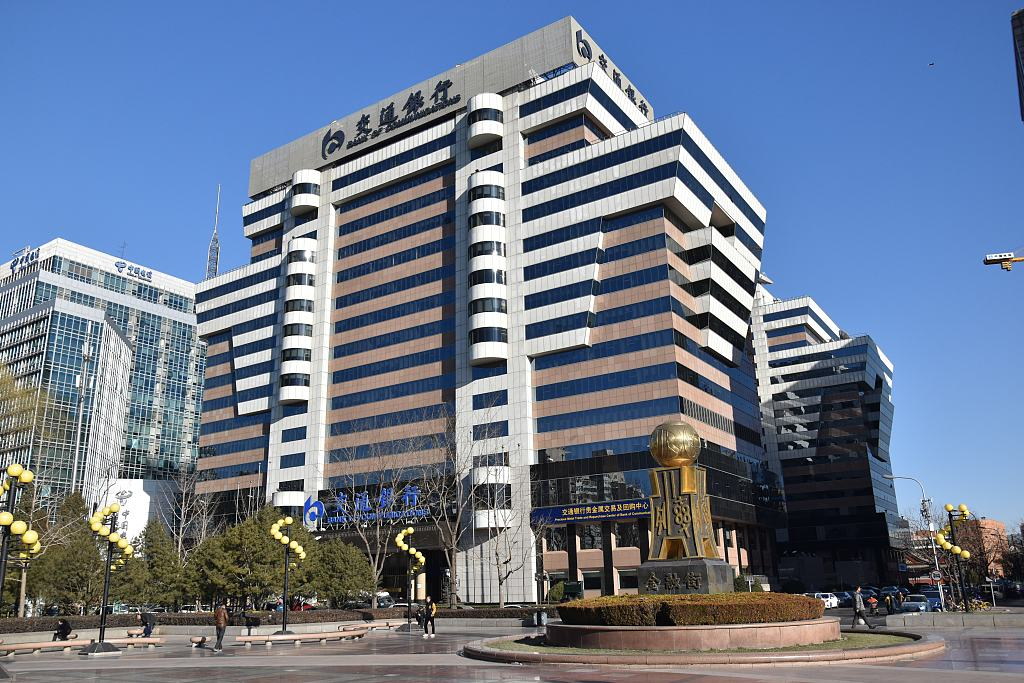
The Great Hall of the People. /VCG Photo
The Great Hall of the People. /VCG Photo
Editor's note: John Gong is a research fellow at Charhar Institute and professor at the University of International Business and Economics. The article reflects the author's opinions, and not necessarily the views of CGTN.
The 19th Central Committee of the Communist Party of China (CPC) concluded its fourth plenary session in Beijing two days ago, and released an important communique that will set China's future development direction for many years to come. The communique appears to affirm many of the existing party policies against the backdrop of internal and external political and economic challenges amidst a slowing-down global economy.
However, there are also some new elements in the communique pertaining to the state-owned enterprises (SOEs) that are worth highlighting. During a press conference on November 1, Han Wenxiu, the deputy director of the Office of Central Commission for Financial and Economic Affairs, provided further details in this regard.
He said the role of SOEs in the marketplace and the government's policy towards corporate entities of other types of equity ownership were discussed during the fourth plenary session. The overarching principle is that SOEs are still going to be a major force of the economy, particularly in industries concerning national economic security.
Usually that notion is interpreted as strategic upstream industries, such as public utilities (electricity, water and telecommunications), transportation (railway and airlines), oil and gas, financial industries (commercial banking and insurance) and some other defense-related industries.
These are industries that are firmly in the hands of the state, but there are also many SOEs in China competing in other industries that see competition from companies of other types of equity ownership, including indigenous private companies and foreign companies.
How SOEs compete with the latter two types of companies in competitive markets and how the government should regulate that relationship remains a contentious and concerning issue to foreign investors. Han addressed particularly that issue in his detailed explanation of the relevant parts of the fourth plenary session communique.
He said Beijing will strive to further improve the business environment in China that is based on rule of law, particularly with respect to supporting the growth of private and foreign businesses. This will include institutional development of better property right protection, further antitrust and anti-unfair-competition law enforcement, and the establishment of a punitive compensation system for IPR (intellectual property right) violations.

Bank of Communications Beijing Branch in Beijing Financial Street, December 20, 2017. /VCG Photo
Bank of Communications Beijing Branch in Beijing Financial Street, December 20, 2017. /VCG Photo
He emphasized the foundational role of the competition policy and better implementation of the fair competition review system. What is contained in Han's concluding remarks is something of great significance: SOEs do not possess inherent natural advantages, but only represent an equal competitive force in the marketplace.
In a way this addresses the fundamental SOE issue that lies at the center of U.S.' trade dispute with China, at least in the eyes of the U.S. Trade Representative Robert Lighthizer.
This is also an issue that is becoming increasingly prominent at the WTO, as China ascends to the largest trading nation status in the world but with a unique economic system that finds it extremely rare with almost all WTO members – we have a large number of SOEs, whose generated value added according to my estimates, accounts for over 30 percent of China's GDP.
For example, one issue that has incurred much criticism in the past is China's industrial policy, state aid and other subsidies that have afforded SOEs with unwarranted advantages both domestically and internationally.
But Han's remarks appear to indicate that era is now gone, as he clearly places competition policy, which he described as "foundational," ahead of industrial policy.
That means any future government policies, particularly policies from local governments, could not be used as instruments to benefit local government controlled SOEs. These policies would have to go through a fair competition review system Han referred to, which was devised by the antitrust bureau of China's National Development and Reform Commission several years ago.
Certainly SOEs do not only exist in China. Europe also has many SOEs. The ultimate and prevalent global framework to regulate SOE's market status is the Competitive Neutrality concept promulgated by the Organization for Economic Co-operation and Development, which stipulates a set of neutrality principles with respect to SOEs and non-SOEs alike.
Yi Gang, governor of China's central bank, has said at the International Monetary Fund and World Bank annual meetings that Competitive Neutrality is something that China is willing to consider. What Han said on November 1 during the fourth plenary session press conference represents a sizable step towards the Competitive Neutrality goal.
(If you want to contribute and have specific expertise, please contact us at opinions@cgtn.com)